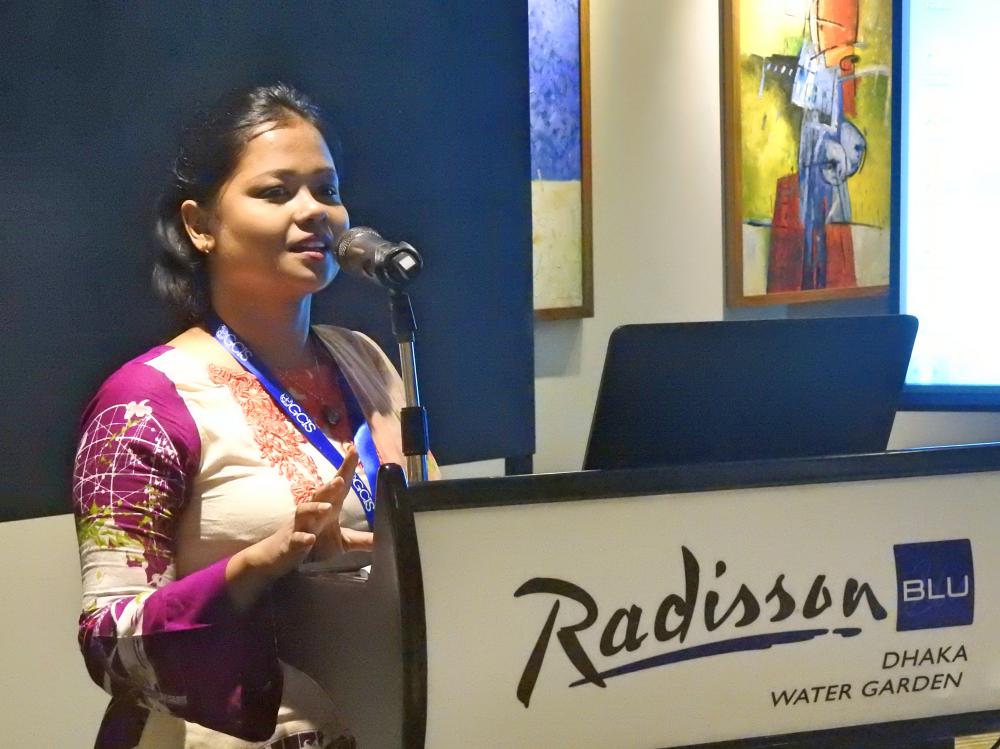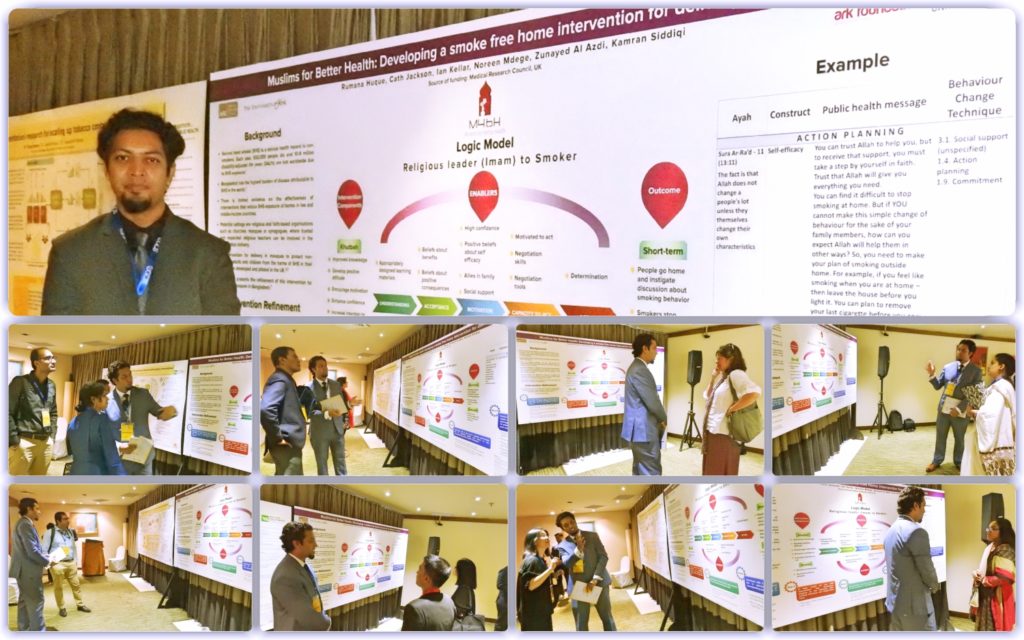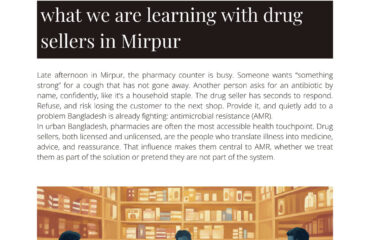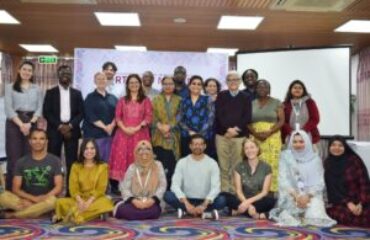Fariza Fieroze, Research Associate, presented a paper titled ‘ Urban day-care for improved health and social outcomes: research to understand demand and implementation of day-care in Dhaka’. This research sought to understand the demand for day-care and the challenges of implementing a day-care model to improve health and ECD among under-5 children from Dhaka’s urban poor. Researchers used a sequential mixed methods design, including participatory action research (PAR) to understand how to implement day-care in the urban context.
 The team found a great need for day-care among vulnerable families. Our survey found 71% [95% CI: 56, 83] of respondents living in ‘slum’ (UNHabitat definition) households needed daycare compared to 44% [95% CI: 24, 67] non-slum (AOR 3.5 [95% CI: 1.6, 7.6]). Qualitative findings confirmed women’s need for long day-care, current lack of provision and concerns for children’s safety. PAR highlighted implementation issues:
The team found a great need for day-care among vulnerable families. Our survey found 71% [95% CI: 56, 83] of respondents living in ‘slum’ (UNHabitat definition) households needed daycare compared to 44% [95% CI: 24, 67] non-slum (AOR 3.5 [95% CI: 1.6, 7.6]). Qualitative findings confirmed women’s need for long day-care, current lack of provision and concerns for children’s safety. PAR highlighted implementation issues:
i) building trust in the community, ii) providing food, iii) role of Madrassa schools, iv) the need for a curriculum to strengthen ECD and v) sustainability.
Zunayed Al Azdi, Research Associate and Uptake Manager, presented a poster titled ‘Muslims for Better Health: Developing a smoke-free home intervention for delivery in mosques’ in the conference. The poster was to show the methodologies, strategies and ideas that helped develop an intervention to be delivered by the religious leaders to change smoking behaviour of people inside their homes. This intervention is the first of its kind in the country that targets second-hand smoking (SHS).
The intervention components were targeted to improve knowledge, develop a positive attitude, encourage motivation, enhance confidence and increase peoples’ intention to act on quitting smoking at homes. The findings of the study have the potential to influence policy and practice on tobacco control, particularly SHS exposure, in Bangladesh.
To see the poster along with the full abstract, please click on the link below:
For more information, you can communicate with the presenters via the following e-mail address:





